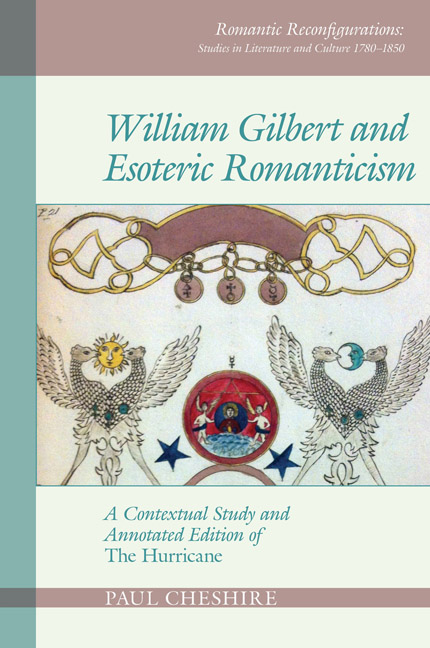 William Gilbert and Esoteric Romanticism
William Gilbert and Esoteric Romanticism Introduction
Summary
Item—A strange Poem written by an Astrologer here.
S. T. ColeridgeA Strange Poem
A ‘strange poem’ indeed: a poem set in the Caribbean, which starts with the unseen effects of the European invasion of America that followed Columbus's voyage of discovery. The natives slaughtered by these European invaders have gathered as spirits beneath the sea, patiently plotting their revenge. Gradually, over 300 years, they have taken over the bodies of successive generations of European invaders until they rebel against Europe and, as Americans, establish the first state to have Liberty and the Rights of Man enshrined in its constitution. This freedom is now spreading back to Europe, and the old despotic order is being swept away. Like John on Patmos, our poet–seer on the Caribbean island of Antigua is given a vision of this impending change and rebirth, which is magically aligned to the action of a hurricane that turns toward Europe to inspire revolution, first in France and next (he hopes) in England.
William Gilbert published this poem, The Hurricane: a Theosophical and Western Eclogue, in Bristol in 1796. To be in Bristol in the second half of the 1790s was to be present at the beginning of English Romantic poetry. Introduced by their publisher Joseph Cottle, Gilbert was soon on intimate terms with Samuel Taylor Coleridge, Robert Southey, and William Wordsworth, who were all impressed enough by his poem to praise it, quote from it, adopt imagery from it, and promote it on his behalf.
Wordsworth, quoting a long extract from Gilbert's extensive notes to The Hurricane, praised it as ‘one of the finest passages of modern English Prose’. Southey called Gilbert ‘a man of brilliant genius’, and admired The Hurricane's ‘passages of exquisite beauty’. Coleridge published a short fragment of selected lines from The Hurricane in his periodical The Watchman, six months before the whole poem appeared in print. When it was published, Coleridge – evidently charged with distributing copies by mail – gave a striking profile of its author in a covering letter:
Item—A strange Poem written by an Astrologer here, who was a man of fine Genius, which, at intervals, he still discovers.—But, ah me! Madness smote with her hand, and stamped with her feet and swore that he should be her's—& her's he is.
- Type
- Chapter
- Information
- William Gilbert and Esoteric RomanticismA Contextual Study and Annotated Edition of ‘The Hurricane’, pp. 1 - 14Publisher: Liverpool University PressPrint publication year: 2018


